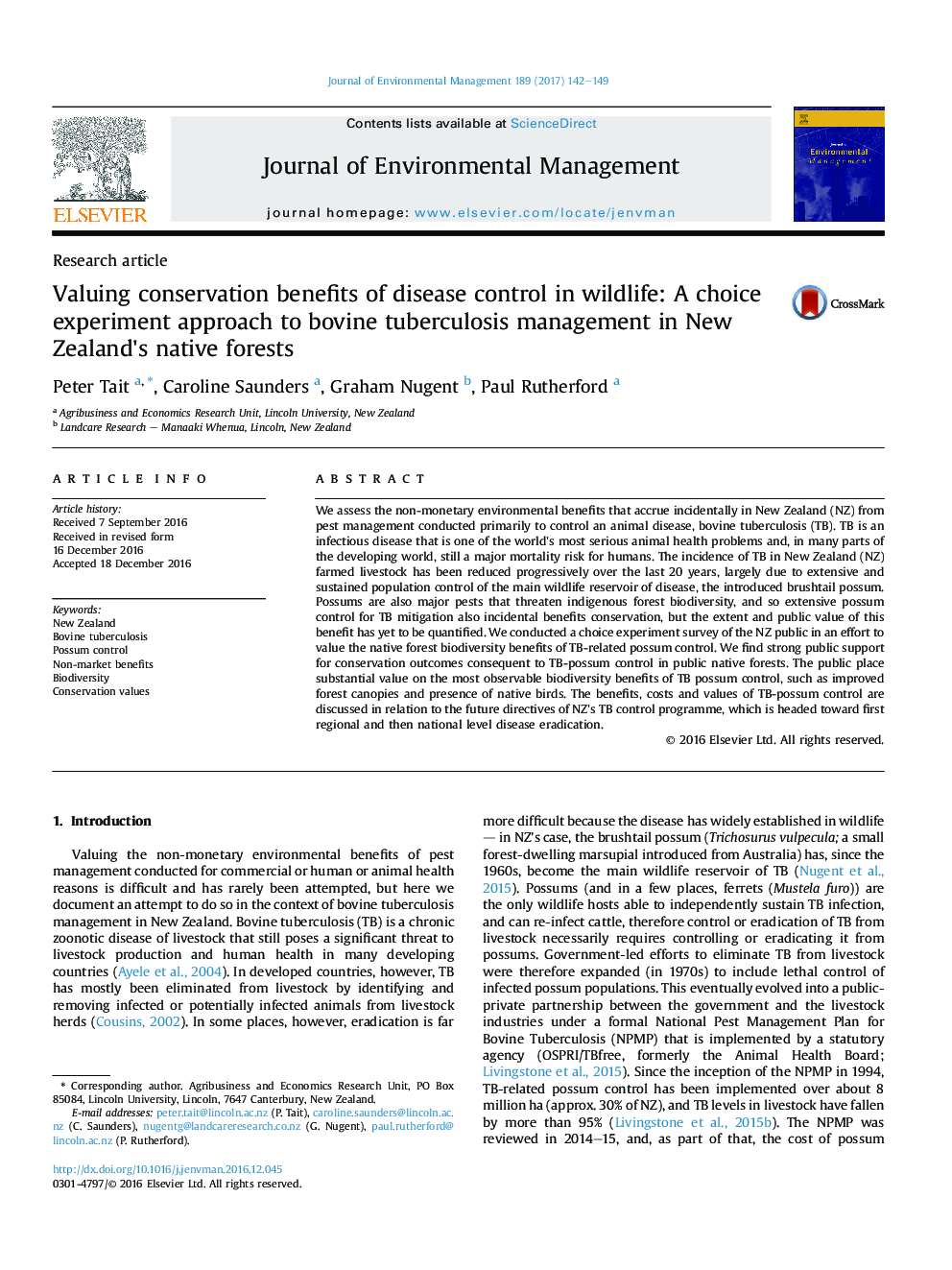| Article ID | Journal | Published Year | Pages | File Type |
|---|---|---|---|---|
| 5117072 | Journal of Environmental Management | 2017 | 8 Pages |
Abstract
We assess the non-monetary environmental benefits that accrue incidentally in New Zealand (NZ) from pest management conducted primarily to control an animal disease, bovine tuberculosis (TB). TB is an infectious disease that is one of the world's most serious animal health problems and, in many parts of the developing world, still a major mortality risk for humans. The incidence of TB in New Zealand (NZ) farmed livestock has been reduced progressively over the last 20 years, largely due to extensive and sustained population control of the main wildlife reservoir of disease, the introduced brushtail possum. Possums are also major pests that threaten indigenous forest biodiversity, and so extensive possum control for TB mitigation also incidental benefits conservation, but the extent and public value of this benefit has yet to be quantified. We conducted a choice experiment survey of the NZ public in an effort to value the native forest biodiversity benefits of TB-related possum control. We find strong public support for conservation outcomes consequent to TB-possum control in public native forests. The public place substantial value on the most observable biodiversity benefits of TB possum control, such as improved forest canopies and presence of native birds. The benefits, costs and values of TB-possum control are discussed in relation to the future directives of NZ's TB control programme, which is headed toward first regional and then national level disease eradication.
Related Topics
Physical Sciences and Engineering
Energy
Renewable Energy, Sustainability and the Environment
Authors
Peter Tait, Caroline Saunders, Graham Nugent, Paul Rutherford,
